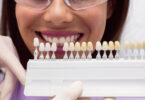Teeth sensitivity can have a serious impact on you, from causing discomfort when eating and drinking to brushing. The pain can be significant for some people and it isn’t something that you should just put up with. It is important that you listen to your body and know when it is time to take action! So, we will be introducing the common signs of teeth sensitivity, so you know when it’s time to act and relieve yourself of the pain.
How To Avoid Tooth Sensitivity
Before we get started and tell you the signs of sensitivity and when to act, we thought we’d introduce a few simple things that you can do to make sure that you can avoid teeth sensitivity if possible! For some people, sensitive teeth are inevitable, but there are a few things you can try to avoid.
Firstly, the best thing you can do to avoid sensitivity is to visit your dentist regularly. They will be able to pick up on things that you might not, and it could just be a quick fix that will help you to avoid sensitivity altogether. For example, sensitivity in the teeth is commonly caused by worn tooth enamel or exposed tooth roots. Sometimes it’s a cavity, cracked or chipped tooth, an old filling or even gum disease. There are indicators that you might have one of these issues that only a dentist can identify, so seeing them regularly will give you the best chance of getting them resolved and not experiencing tooth sensitivity.
In your day-to-day routine, make sure that you use a fluoride toothpaste and mouthwash, as well as flossing once a day, to protect your oral health as a whole. You should also avoid very sugary or acidic foods which often lead to sensitive teeth and other dental problems. If you are drinking something very sugary, use a straw as this will avoid the amount of exposure your teeth have to the drink.
It is also vital that you avoid using any home whitening kits that have not been approved by your dentist. When you buy home whitening kits online, they are usually unregulated and contain unsafe ingredients. You might get some results, but they will be nowhere near what you can achieve when you go to your dentist. They can be extremely damaging to the teeth and are known to cause teeth sensitivity, so avoiding them at all costs is essential for the health of your teeth!
How To Identify Teeth Sensitivity
It isn’t always possible to avoid teeth sensitivity altogether, so now we will look at how to identify sensitivity and when you should take action.
The main symptom of sensitivity in the teeth is discomfort in the mouth when you eat or drink something cold, hot or even sweet. You will feel a sharp feeling that could last for a short time or it could be around for longer. Everyone’s experience of teeth sensitivity is different, with some people feeling an ongoing, duller pain.
When To Act On Teeth Sensitivity
If you experience any of these symptoms, or you think you might have worn tooth enamel, exposed tooth roots, a cavity, cracked or chipped tooth or a worn filling, you must see your dentist. Even mild sensitivity could be an indicator of a more serious problem, so when you think you might have some sensitivity, book in to see your dentist. At this point, it could be a quick fix. If you leave it longer, it could develop into something much more serious that will require more expensive and more invasive treatment.
To summarise, as soon as you think you might be experiencing sensitivity, book your dentist appointment! It will certainly be worth it in the long-run.
Final Thoughts
Teeth sensitivity can have a serious impact on your daily life, so taking action and knowing how to recognise sensitivity is key. The most important thing to remember is if you ever have any concerns about your oral health, go to see your private dentist! We would always recommend private if it is possible, as the level of care and attention you receive is far better than subsidised options.








